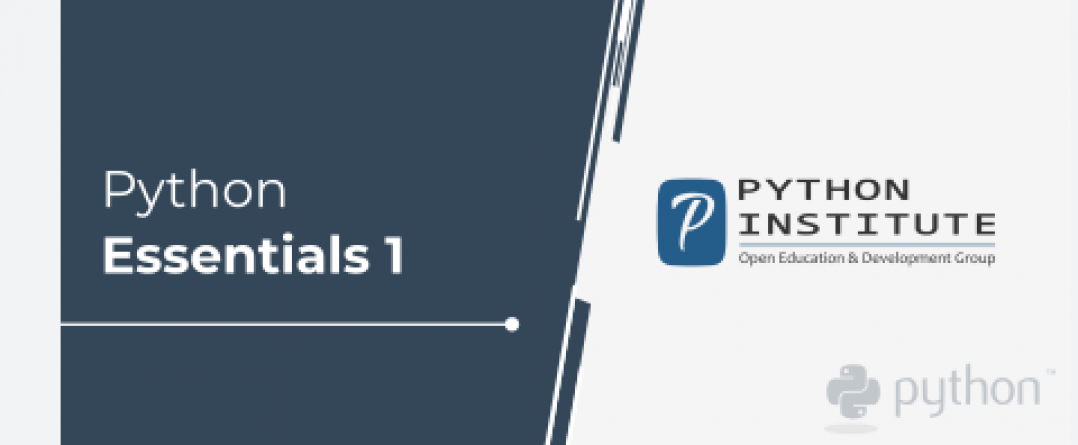
Python Essentials - Part 1 (Basics)
Course Description
The main goal of the course is to guide you from a state of complete programming illiteracy to a level of programming knowledge which allows you to design, write, debug, and run programs encoded in the Python language, and to understand the basic concepts of software development technology.
The course will prepare you for jobs and careers connected with widely understood software development, which includes not only creating the code itself as a junior developer, but also computer systems design and software testing.
You will learn:
- Learn the universal concepts of computer programming;
- Learn the syntax and semantics of the Python language;
- Practice skills in resolving typical implementation challenges;
- Use the most important elements of Python Standard Library;
- Install your runtime environment;
- Write your own Python programs.
Agenda
- Introduction to Python and computer programming
The fundamentals of computer programming, i.e. how the computer works, how the program is executed, how the programming language is defined and constructed, what the difference is between compilation and interpretation, what Python is, how it is positioned among other programming languages, and what distinguishes the different versions of Python;
- Data types, variables, basic input-output operations, basic operators
The basic methods of formatting and outputting data offered by Python, together with the primary kinds of data and numerical operators, their mutual relations and bindings; the concept of variables and variable naming conventions; the assignment operator, the rules governing the building of expressions; the inputting and converting of data;
- Boolean values, conditional execution, loops, lists, logical and bitwise operations
Boolean values to compare difference values and control the execution paths using the if and if-else instructions; the utilization of loops (while and for) and how to control their behavior using the break and continue instructions; the difference between logical and bitwise operations; the concept of lists and list processing, including the iteration provided by the for loop, and slicing; the idea of multi-dimensional arrays;
- Functions, tuples, dictionaries, and data processing
The defining and using of functions – their rationale, purpose, conventions, and traps; the concept of passing arguments in different ways and setting their default values, along with the mechanisms of returning the function’s results; name scope issues; new data aggregates: tuples and dictionaries, and their role in data processing.
- Certification
The candidate who successfully completes the training is required to take the official exam: PCEP (30-02) - Certified Entry-Level Python Programmer. This exam assess the candidate's knowledge and skills in Python programming respectively
Who should attend?
This is a beginners level course for those interested in learning Python programming.
PCEP – Certified Entry-Level Python Programmer certification is a professional credential that measures your ability to accomplish coding tasks related to the essentials of programming in the Python language. A test candidate should demonstrate sufficient knowledge of the universal concepts of computer programming, the syntax and semantics of the Python language as well as the skills in resolving typical implementation challenges with the help of the Python Standard Library.
PCEP – Certified Entry-Level Python Programmer certification shows that the individual is familiar with universal computer programming concepts like data types, containers, functions, conditions, loops, as well as Python programming language syntax, semantics, and the runtime environment.
Becoming PCEP certified ensures that the individual is acquainted with the most essential means provided by Python 3 to enable her/him to start their own studies at an intermediate level and to continue their professional development.
PCEP – Certified Entry-Level Python Programmer certification is an interim step to the PCAP – Certified Associate in Python Programming certification and the starting point to launch a career in software development, Python programming, and related technologies. Becoming PCEP certified will help you stand out from other candidates and get your foot in the door.

